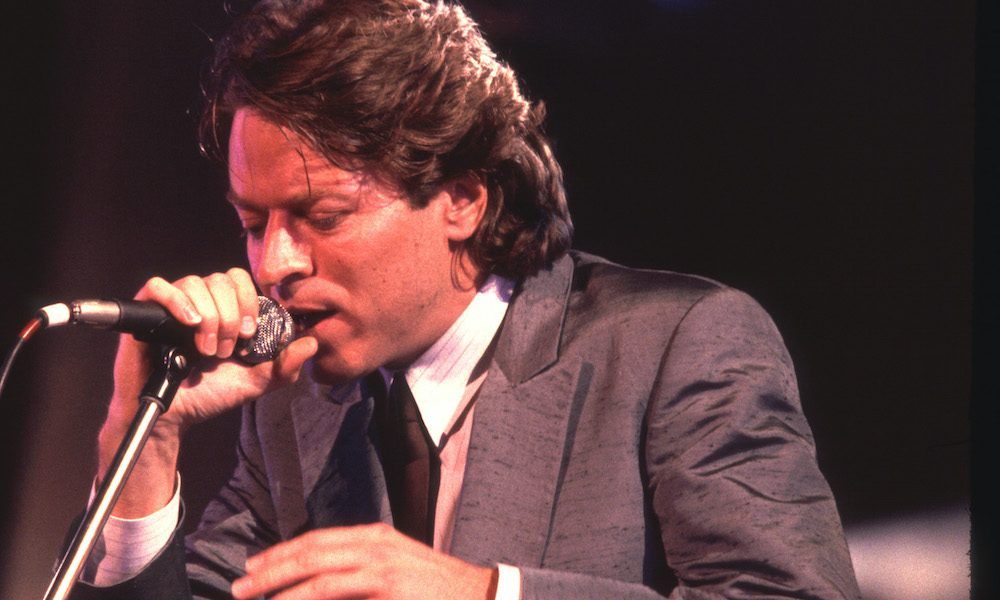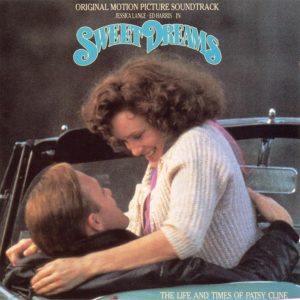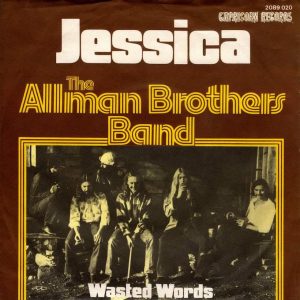The music that Robert Palmer left us stands tall and echoes loudly to this day. To underline our respect for the legacy of the man born on January 19, 1949, this is a history with a difference – as told by Palmer himself, in 20 quotes. They’re presented non-chronologically, in numerous interviews with the music press over a period of nearly 20 years.
The comments cover Robert’s work on particular albums and tracks, memories of the first records he loved and his own early days in music, collaborations with Gary Numan, the Meters and others, and observations about the life and style of a great and much-missed artist.
“‘Respect’ by Otis Redding was the first piece of music that totally engulfed my attention, and I started to collect records. I wrote to Stax, Atlantic, Motown and Sun Records, and discovered things like the British label, Sue, that released ska singles. It was more than a minor obsession! It lead me into the pursuit of atmosphere in music, something completely different from what other people were into at the time. Everybody else was playing Yardbirds and Chuck Berry and I was doing the ‘Harlem Shuffle’” (Playgirl, 1977)
“I used to hate it when I was in my first group in Yorkshire and we’d open for The Move and Jimi Hendrix and I’d think, ‘How come these people act that way? What gives them the right to be that way?’ And I still can’t understand” (NME, 1980)
“I can waste less words now, people understand me more quickly. It just hits quicker. The enthusiasm I’m getting is matching my enthusiasm for the projects, instead of having to fire a situation to get what I want, it’s coming right at me…” (Sounds, 1976)
“I’ve been playing music for 12 years and I don’t want to make a mistake because I’m making my shot now. But I’ve been taking my time doing it because there are so many easy routes which look so treacherous to me that I ain’t prepared to tread ’em. I enjoy singing; it’s the only thing I do that gives me complete satisfaction and I don’t want to jeopardise that” (NME, 1976)
“Allen Toussaint was hanging around the studio when we were making Sneakin’ Sally Through The Alley, but Steve Smith was the producer. The Meters are a burning band, they lock together like a musical puzzle. If you listen to any individual part, it seems so simple. It’s African, it’s all about syncopation” (Mojo, 1994)
“I’ve bought a house in Nassau. I’m off there in a couple of days. It’s the first place I’ve had to live since last August when I left England. I wasn’t staying anywhere more than a month, and it was beginning to get to me, having nowhere to hang your toothbrush, y’know. It’s right by the sea, I can go and check out the tropical fish” (Sounds, 1976)
“I can buy myself a house in Nassau and I can afford to fly back and forth, fly my wife back and forth, and go and see my parents, and fly them out for Christmas and stuff like that. They’re the things I really like to do, and I get to be able to do them because I like to sing. That seems really precious to me and I don’t want to jeopardise it” (NME, 1976)
“[Home in Nassau] is very, very quiet, it’s neutral ground. It’s a place where there’s no competition and no structures. It takes away a lot of the false class crap you find here, where people look at your shoes or listen to your accent and then slot you” (Smash Hits, 1981)
“This new album [Some People Can Do What They Like] is a killer, it really is. It’s nice because I don’t need to feel awkward when people come up to me and say they really like my stuff. I can say, thank you very much, that’s what I do and I do it to the best of my ability. I like it too.” (Sounds, 1976)
“I had a radio hit in America. So I just came over. I just followed the demand rather than trying to go places and create one. That’s why it took me so long to get back to England. I like to go places I’m asked, instead of inviting people to come and see if they like it: ‘Did I pass the audition?’ I’d had enough of that in the groups I was in in England” (NME, 1980)
“I pursue music like I relate to a woman. I feel the rhythm first, then the melody, and finally the lyric. I want to turn into a dolphin next time around. They are the hippest creatures on earth. They appear to have more intelligence than humans, more sensory potential, yet they spend their time in play” (Playgirl, 1977)
“Personally, I’ve always thought that making hit records was a useless pursuit in itself. I’d rather build an audience gradually and create a demand myself rather than use the music industry machinery to create that demand” (Circus, 1978)
“James Jamerson, what a fabulous fellow. Five foot three, never changed his strings. And when he would find a line – because his lines were like songs themselves – he’d stop the take. He’d get so high on himself, he’d go ‘Listen, listen! I’ve found it!’” (Mojo, 1994)
“I’d rather visit a place and play to the demand I’ve already created, so that it’s realistic and I understand the audience reaction. They’re not just clapping because everybody else is. So in some places we play 200-seat clubs for three nights, two shows a night. Other places we go in and do one show to 3,000 people and go out of the place. It just depends what’s happening in each place” (NME, 1976)
“I was doing three of [Gary Numan’s] tunes in my live show about 18 months ago and he came and saw the show with his dad. We got on really well so I suggested that…well, actually he suggested that we work together, so we did.” (NME, 1980)
“People either love what I do or hate what I do – so I’ve got to the point where I just get on with it and the content of what I put on the records is determined from what I learn from the audience, from what works live, from what I want to hear when I go to a club or what I’d like to play when I get home. I’m just trying to include all those different things and mix it up, ’cos otherwise you end up with, what do they call it, a ‘concept’ album or something…” (NME, 1980)
“Lowell George was extremely bright, with a surreal sort of wit, and he was basically a workaholic. Day and night, all he did was make music. I’d never met him until we met up in New Orleans, but it was just instant. After the first couple of songs, he said ‘I’ve got this group, howzabout you come and sing with my band?’ So I joined up with Little Feat and went on the road with them for six months” (Mojo, 1994)
“When I read about myself in the papers, I’m fascinated. I don’t know what they’re talking about…it’s just journalists and record companies trying to create an image for me. Sure, I like food, clothes and the company of women…but a sophisticate and a womanizer? Give me a break!” (The Face, 1983)
“I always find it very difficult to pinpoint anyone particular Marvin Gaye song…It’s the mood he creates when he goes into it, like that ‘I Want You’ record, it’s just a gas. But I never went to see Marvin Gaye sing live, because I didn’t want to see him take his shirt off and all that stuff” (Q, 1986)
“My manager always accuses me of being a cruiser – he says I cruise through things, whereas he believes in going at them with your fists. But I don’t have that kind of pride. The only things I believe in are birth and death, and in between you get on with it” (Smash Hits, 1981)




